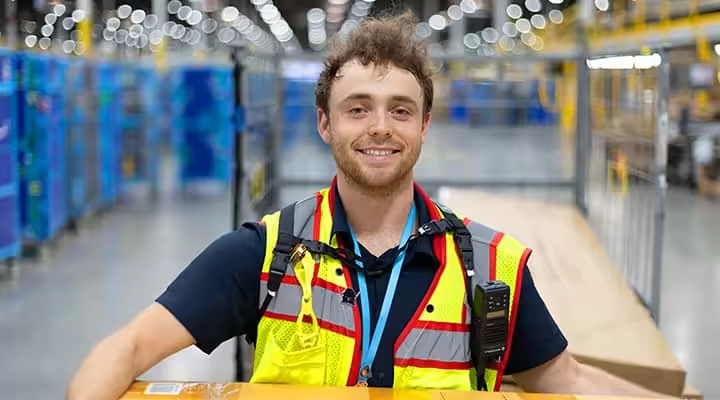Securing employment is proving to be a significant challenge around the world. Attaining a job with a criminal record appears to be an even more difficult task. The impact of a felony conviction on job prospects can persist for years, and individuals with criminal records often face significant barriers to employment despite efforts to reintegrate into the workforce. Individuals with felony records face substantial challenges in terms of securing gainful employment.
According to a study conducted by the University of Georgia, there were approximately 19 million people in the U.S. with a felony record, including those who have been to prison, jail, or on felony probation. In pursuing employment opportunities, grasping the hiring policies of corporations becomes essential, particularly for individuals with unique circumstances.
The big question is which companies hire individuals with felony records. There are over 350 companies that are known for offering second chances to individuals with criminal records, including felons. Some companies are committed to providing employment opportunities for people with criminal records, and various job opportunities are available for ex-felons.
This article takes a closer look at how Amazon, a dominant force in the global job market, hires, including any recent updates and initiatives that may impact the chances of individuals with felony records getting hired in 2025. Going through the intricacies of Amazon's hiring policies is essential for prospective employees and also holds implications on inclusivity and second chances in the workforce.
Background on Amazon
Amazon's growth and impact on the economy
Amazon's exponential growth over the years has reshaped the e-commerce landscape and significantly influenced the job market. Amazon forecasts its annual revenue growth rate to be 12.73% in 2025, with an expected revenue of $485.9 billion. As one of the largest employers globally, Amazon operates in various sectors, from retail and technology to logistics and entertainment. The company's expansive reach has created diverse job opportunities, catering to various skills and backgrounds.
The diversity of job opportunities at Amazon
Beyond its renowned e-commerce platform, Amazon boasts extensive roles, including positions in fulfillment centers, technology development, customer service, and more. Amazon's investments have supported nearly 1.6 million indirect jobs in construction and logistics. While Amazon's prominence in the market is evident, the critical question remains: does this vast and influential employer consider applicants with felony records in 2025?
Related: Companies that Hire Felons
Amazon's General Hiring Policies
Amazon always adheres to a thorough and structured recruitment system involving online applications, assessments, interviews, background checks, and drug screenings for all potential employees. This standardized process ensures fairness and transparency in evaluating candidates.
What Does Amazon Look for in Criminal Background Checks?
Amazon's background checks typically span seven to ten years, in line with the Fair Credit Reporting Act (FCRA) guidelines. Amazon tends to consider the following when reviewing the background records of such applicants:
Nature of the Offense: Amazon considers the severity and nature of the offense, as well as its relevance to the job. For example, a felony conviction that's further in the past, typically more than seven years old, might be easier to overlook.
Individualized Assessment: The company conducts an individualized assessment of each applicant, considering their criminal history, work experience, and references.
Case-by-Case Basis: Amazon treats every application on a case-by-case basis, so they may still consider applicants with a history of crimes that don't affect the role they're applying for. For example, an applicant with a low-level drug offense is more likely to be considered, while someone convicted of theft or fraud is more likely to be rejected.
Basic eligibility criteria for employment at Amazon
Amazon's essential eligibility criteria for job applicants, first and foremost, include crucial skills and qualifications as outlined in the job descriptions. Other criteria may include age restrictions, educational qualifications, and legal work authorization. Individuals with criminal records, including felons, can apply for jobs at Amazon through the same online application process as other applicants, and their eligibility is assessed based on the specific job requirements and the nature of their offense.
Related: Does FedEx Hire Felons
Felony Convictions and Employment
Amazon's stance on hiring individuals with felony convictions
Like many corporations, Amazon has established guidelines and policies regarding the employment of individuals with felony convictions. Amazon's official stance on hiring individuals with felony convictions is not explicitly detailed in its public-facing documents. However, the company does adhere to the Equal Employment Opportunity Commission (EEOC) guidelines, which prioritize an individualized assessment of each applicant. The company publicly announced that they do hire felons. This stems from Amazon's commitment to corporate social responsibility, legal compliance against discrimination, and the desire to maintain a positive public image.
Factors influencing Amazon's decision to hire individuals with a felony record
Beyond legal requirements, various factors contribute to Amazon's decision-making regarding hiring individuals with felony records. This could include the nature of the offense, the time elapsed since the conviction, and the individual's rehabilitation efforts. Amazon also considers the nature of the offense and its relevance to the job when making hiring decisions. While the company does hire individuals with criminal records on a case-by-case basis, certain types of criminal convictions, such as murder, theft, and drug charges, might make it difficult to secure employment.
Related: Does UPS hire felons?
Related: Amazon Jobs in Houston, TX: What you need to know
Amazon's Second Chance Initiative
Amazon is also known as a "second chance employer". The company is committed to inclusivity and providing opportunities for individuals facing barriers to employment, and this is evident through its Second Chance Initiative.
Amazon's "Second Chance" initiative is a program to hire 100,000 employees, including those with felony records. The Second Chance Initiative is designed to create a more accessible pathway to employment for individuals with criminal backgrounds. It is important to note that the job a felon gets is highly dependent on the nature of the offense, but the jobs that felons can usually secure are as follows:
- Warehouse Jobs: Amazon has a history of hiring felons for warehouse positions. These roles are often available at fulfillment centers, sortation centers, and delivery stations. While these positions are usually temporary, they can lead to full-time employment based on the individual's performance and the company's needs.
- Customer Service Positions: Felons may also find opportunities in customer service roles, both online and in retail. It's important to note that individuals with a violent crime record are less likely to be considered for these positions.
- Temporary Jobs: Amazon is more likely to hire felons for temporary positions, allowing the company to assess their skills and performance before offering a permanent position. These temporary roles can enable individuals to demonstrate their value in the workforce despite their past.
Related: Trucking Companies That Hire Felons
Conclusion
The key points covered in this article include Amazon's standard hiring process, eligibility criteria, and the factors influencing the company's decision to hire individuals with felony backgrounds. While acknowledging the challenges individuals face with felony records, the article has also highlighted Amazon's commitment to inclusivity through initiatives such as the Second Chance Program.
As the job market evolves, prospective employees must be well-informed and equipped with the knowledge to navigate the application process. Comprehension of specific policies, programs, and resources companies provide can significantly impact the journey toward gainful employment for individuals with felony records.

